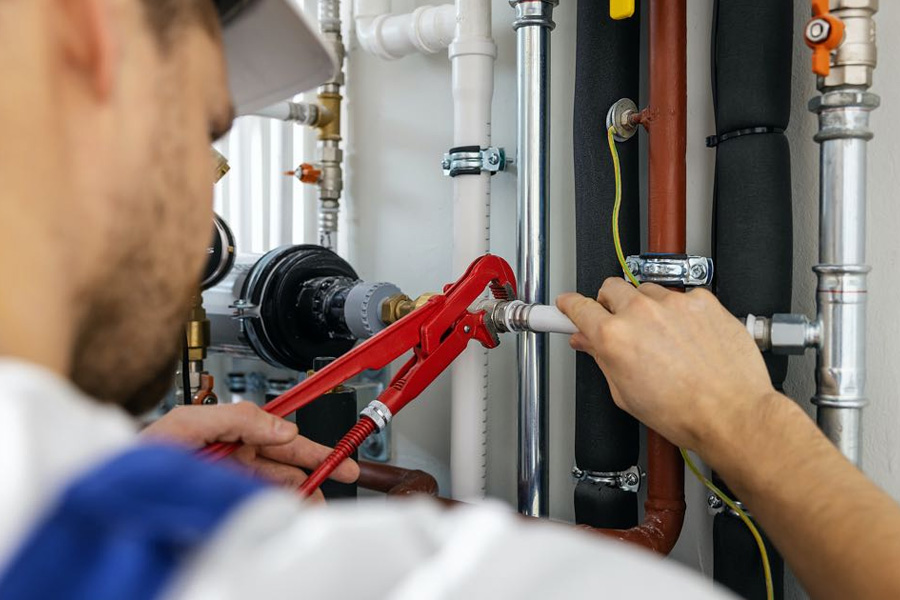
Choosing The Right Plumber: Questions To Ask Before Hiring
Picking the correct plumber might mean the difference between an expensive catastrophe and a fast remedy when dealing with plumbing problems. Doing your research before choosing is essential because there are a lot of possibilities accessible. To guarantee you choose a suitably qualified plumber, this article provides a list of important inquiries to put on the backs of prospective hires.
1. Are You Licensed And Insured?
If a plumber is licensed and insured, it should always be your first query. In your state, a license proves that a plumber has fulfilled the qualifications to practice. A particular level of experience and exam pass rates are two examples of this. If you get injured on the job or suffer property damage, insurance shields you from responsibility. An insured plumber and a licensed plumber go hand in hand.
2. What Is Your Experience?
Experience is of the utmost importance in plumbing. Be sure to inquire about their experience and duration in business when considering prospective plumbing contractors; their longstanding presence can offer invaluable insights that lesser experienced plumbers could not. Furthermore, inquire as to their specialties in residential, business or emergency plumbing services, which might also prove useful.
3. Can You Provide References?
Never be afraid to get recommendations from prior customers. An authentic Plumber 77071 ought to furnish a roster of contented clients who can attest to their proficiency. Speak with these recommendations and find out about their experiences. Did the job meet their expectations in terms of quality? Was it on schedule for the plumber to arrive? Were the budget and timeline for the completion of the project met? You can assess the plumber’s repute and dependability by reading sincere reviews.
4. What Are Your Fees And Estimates?
When choosing a plumber, it is crucial to know how much plumbing services will cost. Get an accurate price that covers all costs, including labor, supplies, and any other extras. While some plumbers use an hourly rate, others could have set fees for particular tasks. Always make sure to ask if there are any potential hidden expenses or if the estimate covers everything. Additionally, it’s a good idea to compare services and prices by getting estimates from several plumbers.
5. Do You Offer A Warranty?
At their disposal are parts and labor warranties to give homeowners peace of mind in case something goes amiss after completion. Ask the plumber what exactly is covered under warranty as well as its length; warranties provide insurance against unexpected costs while showing their confidence.
6. What Is Your Availability?
The availability of the plumber is important because plumbing crises can occur at any time. Find out what time they respond to important concerns and whether they provide emergency assistance. Ask them about their normal working hours and the earliest time they can arrange your task if your plumbing problem is not an emergency. Knowing whether they can meet your deadline will be made easier by this.
7. What Safety Measures Do You Take?
Any plumbing project must prioritize safety. Ask the plumber what safety precautions they use to keep both your property and themselves safe. The use of safety gear, correct waste disposal, and compliance with regional plumbing laws and ordinances are all examples of this. When safety is a plumber’s top priority, accidents are reduced and responsible completion of the work is guaranteed.
8. Will You Provide A Written Contract?
A signed contract outlining the scope of work, pricing, and timetable should be obtained from the plumber before any work is done. Explanations and protection for both sides can be provided via a formal agreement. Don’t hesitate to ask for clarification on any aspects that seem ambiguous or unclear. Carefully review the contract to make sure it has all the information discussed.
9. How Do You Handle Complaints?
Problems can occasionally arise even with the most skilled plumbers. Knowing how they address grievances or unhappiness is crucial. Find out if they have a customer service policy in place and their procedure for handling complaints. It shows professionalism and accountability for a plumber to listen to what customers have to say and be willing to make amends.
Conclusion
Choose wisely when it comes to plumbing services – saving both time and money with each decision made. Learning more about their credentials, experience, and dependability through asking pertinent questions can give a good indication. Once again, it’s important to trust your instinct and choose someone who makes you comfortable – someone who communicates well – this way, all plumbing issues will be managed more confidently with an expert by your side.

